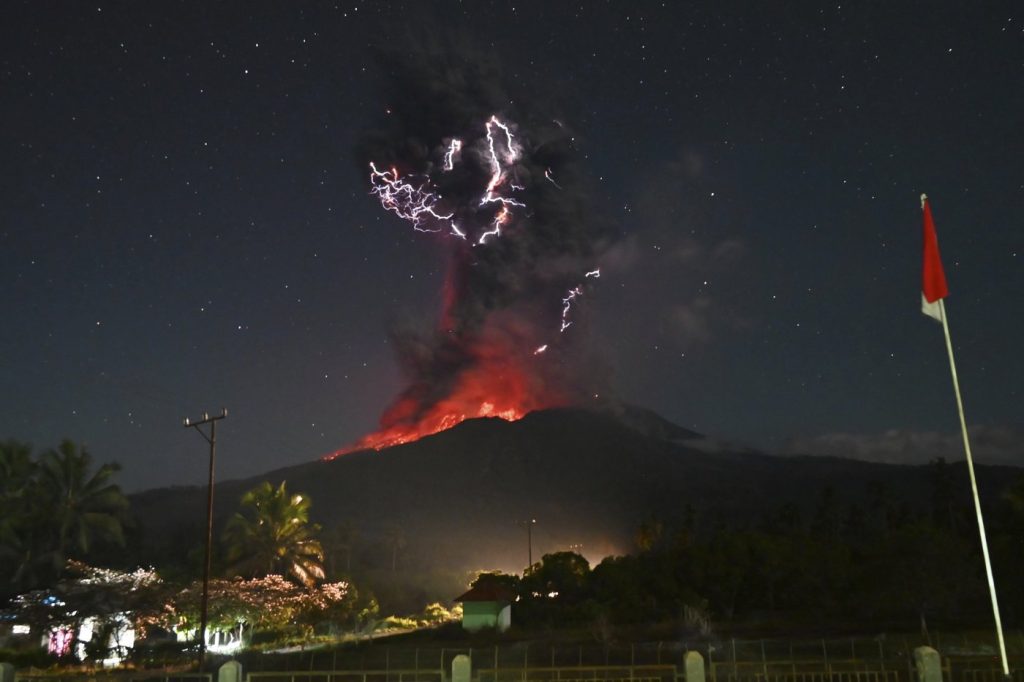JAKARTA, Indonesia (AP) – Mount Lewotobi Laki Laki, one of Indonesia's most active volcanoes, erupted for the second consecutive day, launching a column of volcanic materials and ash into the atmosphere, reaching heights of up to 18 kilometers (11 miles) early Saturday. This eruption blanketed nearby villages with debris, though no casualties were reported immediately.
On the evening prior, another eruption sent ash clouds soaring up to 10 kilometers (6.2 miles) high, illuminating the night sky with the glow of lava accompanied by bolts of lightning. The rapid sequence of these eruptions occurred in less than five hours, indicating a significant volcanic disturbance.
Indonesia’s Geology Agency observed an avalanche of searing gas clouds intermingled with rocks and lava, traveling as far as 5 kilometers (3 miles) down the flanks of Mount Lewotobi. Drone surveillance indicated deep movement of magma, causing tremors that were detected by seismic monitors. Volcanic material, including hot thumb-sized gravel, was ejected up to 8 kilometers (5 miles) from the crater, covering surrounding towns and villages with a thick layer of volcanic residue.
Authorities have urged residents to remain vigilant, particularly regarding heavy rainfall, which could trigger lava flows in rivers that originate from the volcano. Saturday's eruption stands out as one of Indonesia's most substantial volcanic events since the major eruption of Mount Merapi in 2010, which resulted in over 350 fatalities and necessitated the evacuation of hundreds of thousands of residents from densely populated areas on the island of Java.
This latest eruption comes shortly after a significant eruption on July 7, which disrupted flight operations at Bali’s Ngurah Rai Airport and covered roads and agricultural land with thick gray mud and debris. Mount Lewotobi Laki Laki, with an elevation of 1,584 meters (5,197 feet), is located on the remote island of Flores and has maintained the highest alert level since it erupted on June 18. Consequently, the exclusion zone surrounding the volcano has been expanded to a radius of 7 kilometers (4.3 miles) in light of the increased frequency of eruptions.
The Indonesian government has permanently relocated thousands of residents following a series of eruptions in November that resulted in the deaths of nine individuals and caused significant destruction to homes. Indonesia, home to more than 280 million people, is an archipelago characterized by frequent seismic activity, featuring 120 active volcanoes. The country is situated along the "Ring of Fire," a horseshoe-shaped series of seismic fault lines that encircle the Pacific Basin.
The continued volcanic activity of Mount Lewotobi Laki Laki poses a considerable risk to the surrounding communities, necessitating ongoing monitoring and preventive measures from local authorities to safeguard residents from potential hazards associated with volcanic eruptions.











